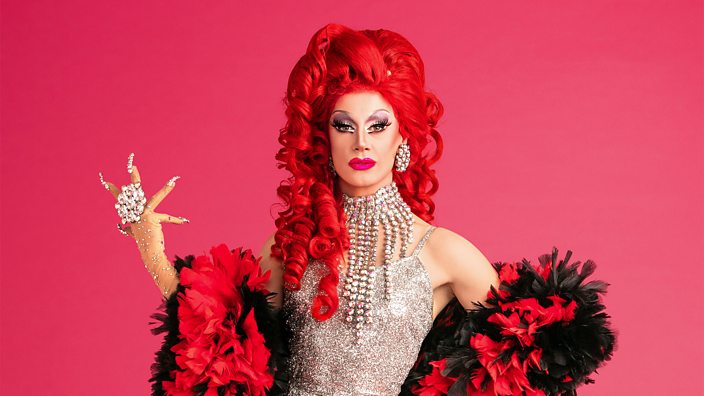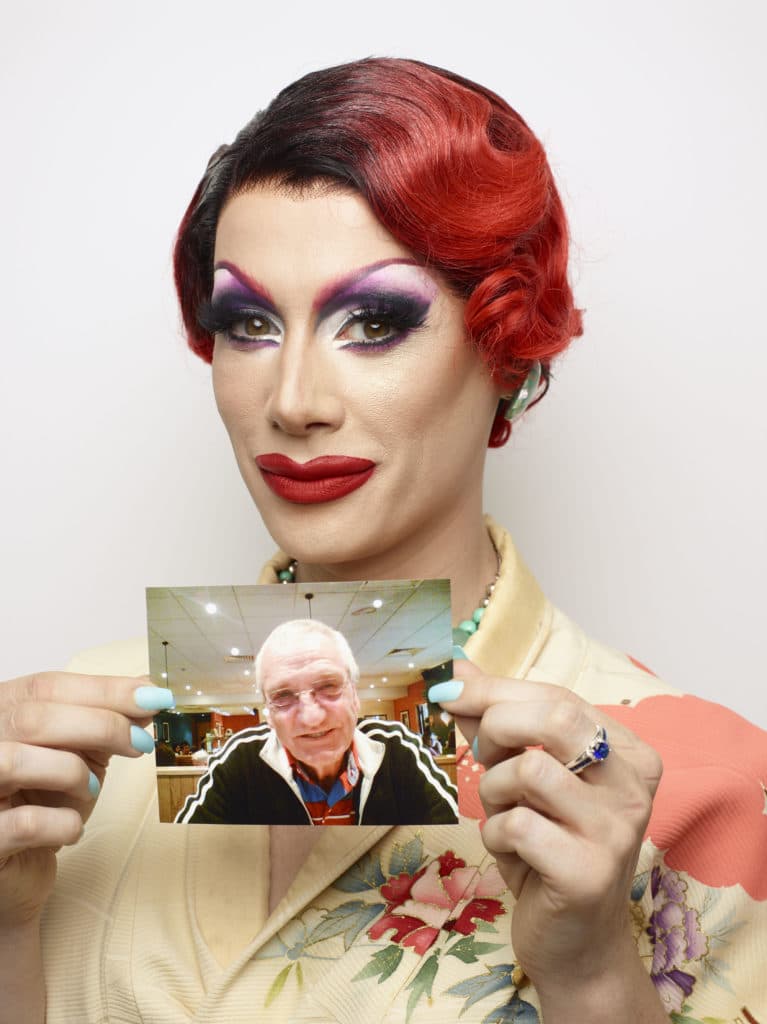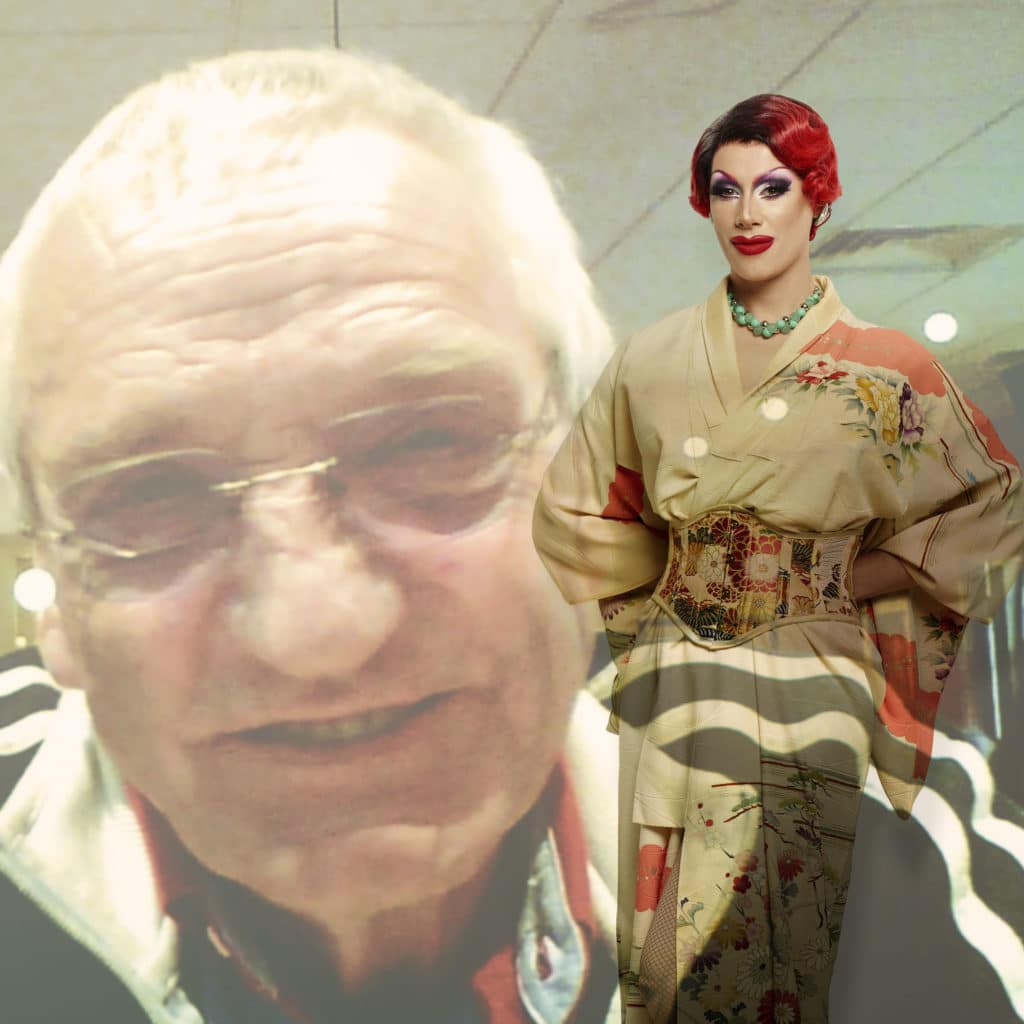Drag Race UK royalty Divina de Campo is ready to break the final taboo – death

Drag Race UK star Divina de Campo. (BBC)
Divina de Campo wants to get Britain talking about death.
Taboos are a loose concept for drag queens, any anybody who’s been heckled or dragged on stage by one can attest.
But one topic that’s unlikely to many laughs, even in the most close-to-the-wire sets, is death.
“I think it’s a very British thing that we don’t really talk about death; we don’t really talk about emotions,” RuPaul’s Drag Race UK finalist Divina de Campo tells PinkNews.
“It’s one of those weird hangovers from the Victorian era; there’s this weird culture of toxic positivity. You never talk about anything that actually makes you feel sad or upset or angry. The pursuit of life is happiness, but actually I think that that is a false pursuit. Happiness isn’t something that is constant, it is something that you experience.”
Divina is one of more than a dozen stars taking part in Lost for Words, a new digital exhibition shot by Rankin and presented by life insurance, pensions and investment firm Royal London.

Divina de Campo holds a photo of her late father-in-law, Bob. (Rankin/Royal London)
Comprised of photographs and video interviews, the exhibition sees Divina and others share their personal stories of loss. Stuart and Doreen Lawrence remember their son, Stephen; Konnie Huq reflects on losing her parents in relatively quick succession and John Stapleton talks about his wife’s passing.
It aims to encourage conversations around death; to normalise an experience that can feel totally alienating, despite being just about the only thing guaranteed in life.
“What if ‘the conversation’ wasn’t so difficult?” Rankin asks. “What if it was easier, reassuring, funny, joyful? What if it, conjured memories of a full and happy life, rather than existential panic? It’s time to change the narrative.”
In her video interview Divina speaks about the loss of her father-in-law Bob, who passed away after a misdiagnosed stroke.
“He was let down by our local GP,” she tells PinkNews. “He just sort of stopped being able to do stuff. My husband said: ‘I think he’s had a stroke,’ and the doctor said: ‘He’s just putting it on, for attention.'”
“Bob was absolutely not that person. He’d worked his entire life, in his ’70s he was still teaching me how to make cement and fixing things… he wasn’t that person.”

Divina de Campo wants people to start talking about grief. (Rankin/Royal London)
Divina admits that she’s still “never really dealt” with her grief.
“I just sort of pretend that they’re on a really long holiday, which I don’t think is the most healthy thing to do.
“It’s like there’s a hole that will always be there and will never be filled. Sometimes that hole will be enormous, other times it will be quite small. In my experience there isn’t any rhyme or reason as to why that’s larger or smaller.
“I think a lot of people this year will be experiencing grief, either for the first time or again, so finding a way for us to talk about it would be really helpful.”
“I’m not qualified to give advice,” she adds, “but I think jut allowing people to speak about it [helps], and not saying, ‘It’ll be alright, look to the future.’
“Experiencing those emotions are more helpful than pretending that they’re not there; allowing people to experience those emotions. Sometimes you have to accept, this is s**t, this situation is s**t. Nobody wants this. But it is, unfortunately, a fact of life. And so the more able we are to talk about it, I think, the better.”
Lost for Words is a free digital exhibition open now.

